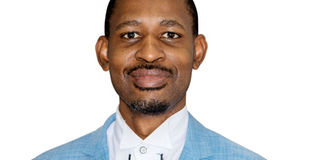Save the middle class to cushion the rich-poor gap or will all sink together

DR VICENT BAKYENGA
What you need to know:
Economic balance. In the case of Uganda, who will drive this growth given that twenty three million Africans will slip into extreme poverty further widening the economic divide? It is the middle class that cushions the extreme
rich from the very poor by facilitating wealth transfer and losing this safety net will possibly turn the extreme rich into food for the poor.
It is common knowledge that an average working class Ugandan not only lives from hand to mouth but is also a perpetual debtor. For most Ugandans, our salaries will have evaporated into thin air by the end of the second or third week of the month. This leaves us not only broke but literally poor for a week until the magical salary makes another appearing and disappearing act.
There has been a great misconception, especially in the minds of our leaders, to the effect that Ugandans don’t want to save and love spending more than they earn. While this might hold some truths, for the majority of Ugandans, this could not be further from the truth. We are perpetually broke either because we are underpaid or underemployed.
This would not be a challenge if our responsibilities were commensurate to our earnings. Just providing for transport, accommodation and food about wipes out our earnings. Add personal education/ educating our dependants coupled with the other demands of our extended families and you have created an excellent opportunity for money lenders. This situation is further compounded by the fact that anyone that earns as low as Shs1 million will have to forego about 30 per cent in PAYE.
In the recent days since the advent of the Covid-19 pandemic, the government has actively focused on two main areas namely: protecting the health of citizens and cushioning the economy from major shocks by addressing macroeconomic bottlenecks (currency stabilisation, addressing balance of payment, re-financing Uganda Development Bank etc).
While these interventions are excellent, I fear they might not be as deep as we need as a nation. To rebuild this nation, we must focus on the Ugandan ‘middle class’ whose plight is described herein.
NSSF just shared some shocking details this week in response to the national agitation for early payment of 20 per cent of employee savings. The average monthly remittance of over Shs100 billion is generally supported by the Fund membership of just under 2.3 million members, and a core of 1.2 million members (with a balance on their account).
It is thus glaring that the majority of the Ugandan workforce is employed either informally (trade/ agriculture) or by weak institutions going by the NSSF remittances. This statistic alone ought to ignite a holy anger in our leaders.
We are aware that massive layoffs and even business shutdowns are not too far
along the horizon. Whereas the collapse of one business generally creates opportunities for another, we cannot afford to be complacent given our fragile state. What can we do to make sure that these entities survive?
No matter how we view these businesses, they provide employment to many Ugandans who in turn sustain our economy by spending all their money consuming products and services. There has been talk of demanding that landlords give rent holidays to tenants, raising the PAYE threshold over Shs500,000) etc.
Whatever the case, we must ponder how Ugandans will afford any goods or services without an income. The government should not take this matter lightly either. Whether we import or manufacture locally, we must not lose sight of the fact that in the face of non-existent foreign markets, our major consumer will be domestic. Now more than ever, we must cultivate and empower this consumer for that might not only be our singular but best bet choice.
The International Monetary Fund (IMF) has in its World Economic Outlook for April 2020 projected that as a result of Covid-19, sub-Saharan economies are projected to contract by 1 per cent and grow by 6.6 per cent for the years (2020/2021).
In the case of Uganda, who will drive this growth given that twenty three million (sub-Saharan) Africans will slip into extreme poverty further widening the economic divide? It is the middle class that cushions the extreme rich from the very poor by facilitating wealth transfer and losing this safety net will possibly turn the extreme rich into food for the poor.
Macroeconomic interventions address the foundations of our economy but the micro-ecosystems formed and sustained by small and medium enterprises are the super structure around which we have constructed our nation not so much by design but by default.
Our Pearl of a nation has developed a crack, chances are that the building that houses us will as a result lose a window and should we choose to look on, it may not be long before the entire structure comes crashing us all down.
May God forbid that we as a nation should raise our hands to pray when at this time we should be joining hands, hearts and minds to forge a better way to our shared future prosperity.




